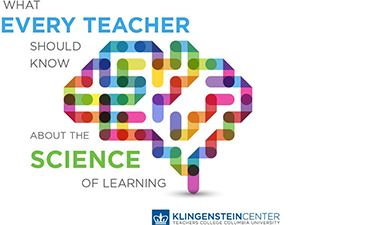


The Science of Learning - What Every Teacher Should Know


This education course will show you, through current research, how we learn — the way our brain makes, stores, and retrieves memories.
Read more
This education course will show you, through current research, how we learn — the way our brain makes, stores, and retrieves memories.
This education course will show you, through current research, how we learn — the way our brain makes, stores, and retrieves memories.
You will examine common misconceptions and misunderstandings about learning that can prevent students from learning at their fullest capacity. Along the way you will explore the practical implications of cognitive science for classroom teaching in terms of choosing effective instructional strategies, developing useful assessments, motivating student effort, and designing learner-centered curricular units.
This course is aimed to enhance the practice of K-12 teachers.
What you'll learn
- How the brain encodes memories, stores them, and retrieves them for later use;
- Why working memory is so important for learning and ways to prevent it from getting overloaded;
- Strategies for making memories that “stick” and can be readily recalled when needed;
- Misconceptions that many students have about learning and ways to correct them;
- How student mindsets and beliefs about learning can help or hinder their academic success;
- How to help students become independent and self-regulated learners so they can lead their own learning;
- Teaching strategies and assessment techniques that maximize student learning.
What's inside
Learning objectives
- How the brain encodes memories, stores them, and retrieves them for later use;
- Why working memory is so important for learning and ways to prevent it from getting overloaded;
- Strategies for making memories that “stick” and can be readily recalled when needed;
- Misconceptions that many students have about learning and ways to correct them;
- How student mindsets and beliefs about learning can help or hinder their academic success;
- How to help students become independent and self-regulated learners so they can lead their own learning;
- Teaching strategies and assessment techniques that maximize student learning.
- How the brain encodes memories, stores them, and retrieves them for later use;
- Why working memory is so important for learning and ways to prevent it from getting overloaded;
- Strategies for making memories that “stick” and can be readily recalled when needed;
- Misconceptions that many students have about learning and ways to correct them;
- How student mindsets and beliefs about learning can help or hinder their academic success;
- How to help students become independent and self-regulated learners so they can lead their own learning;
- Teaching strategies and assessment techniques that maximize student learning.
Good to know
Save this course
Reviews summary
Science of learning
Career center
Learning Scientist
Teacher
Instructional Designer
Learning and Development Manager
Educational Consultant
Educational Technology Specialist
Instructional Coach
Educational Researcher
School Administrator
Cognitive Psychologist
Training and Development Specialist
Human Resources Manager
Higher Education Faculty
Curriculum Developer
Reading list
Share
Similar courses
OpenCourser helps millions of learners each year. People visit us to learn workspace skills, ace their exams, and nurture their curiosity.
Our extensive catalog contains over 50,000 courses and twice as many books. Browse by search, by topic, or even by career interests. We'll match you to the right resources quickly.
Find this site helpful? Tell a friend about us.
We're supported by our community of learners. When you purchase or subscribe to courses and programs or purchase books, we may earn a commission from our partners.
Your purchases help us maintain our catalog and keep our servers humming without ads.
Thank you for supporting OpenCourser.

